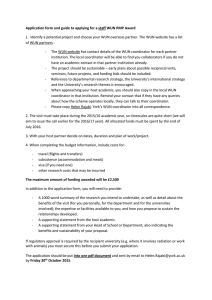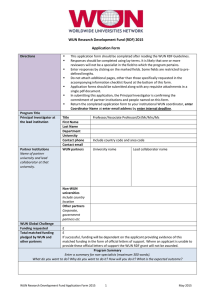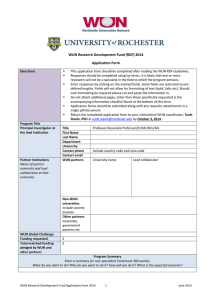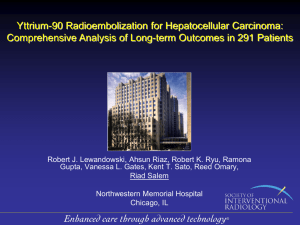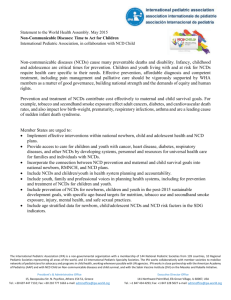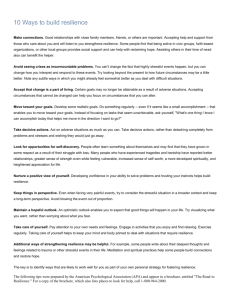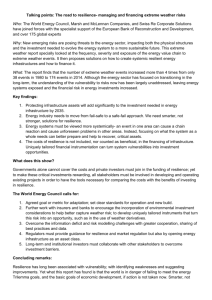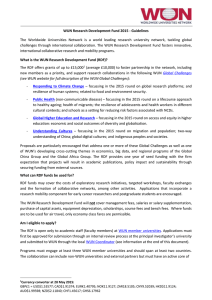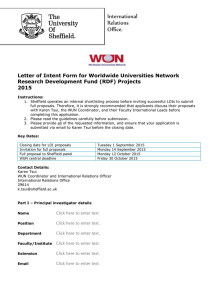WUN Global Challenges (Office document, 73kB)
advertisement
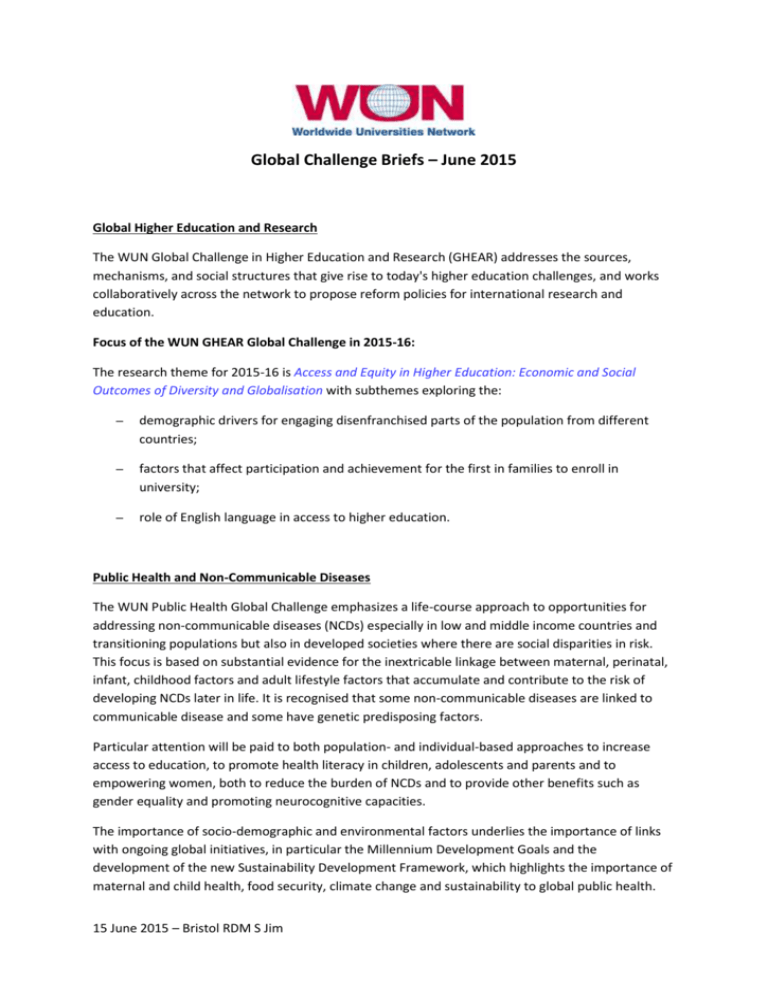
Global Challenge Briefs – June 2015 Global Higher Education and Research The WUN Global Challenge in Higher Education and Research (GHEAR) addresses the sources, mechanisms, and social structures that give rise to today's higher education challenges, and works collaboratively across the network to propose reform policies for international research and education. Focus of the WUN GHEAR Global Challenge in 2015-16: The research theme for 2015-16 is Access and Equity in Higher Education: Economic and Social Outcomes of Diversity and Globalisation with subthemes exploring the: – demographic drivers for engaging disenfranchised parts of the population from different countries; – factors that affect participation and achievement for the first in families to enroll in university; – role of English language in access to higher education. Public Health and Non-Communicable Diseases The WUN Public Health Global Challenge emphasizes a life-course approach to opportunities for addressing non-communicable diseases (NCDs) especially in low and middle income countries and transitioning populations but also in developed societies where there are social disparities in risk. This focus is based on substantial evidence for the inextricable linkage between maternal, perinatal, infant, childhood factors and adult lifestyle factors that accumulate and contribute to the risk of developing NCDs later in life. It is recognised that some non-communicable diseases are linked to communicable disease and some have genetic predisposing factors. Particular attention will be paid to both population- and individual-based approaches to increase access to education, to promote health literacy in children, adolescents and parents and to empowering women, both to reduce the burden of NCDs and to provide other benefits such as gender equality and promoting neurocognitive capacities. The importance of socio-demographic and environmental factors underlies the importance of links with ongoing global initiatives, in particular the Millennium Development Goals and the development of the new Sustainability Development Framework, which highlights the importance of maternal and child health, food security, climate change and sustainability to global public health. 15 June 2015 – Bristol RDM S Jim Focus of the WUN Public Health Global Challenge in 2015-16: 1. Lifecourse approach to healthy ageing Ageing populations and the concomitant growing burden of non-communicable disease are high on the agenda for health and social policy. WUN responds to this by bringing to bear its considerable strengths in lifecourse approaches. What are the early-life indicators of healthy ageing and what interventions can be introduced at an early age (gestation, pre-adolescence, adolescence) to best ensure healthy outcomes in later life? 2. Health of migrants across the lifecourse How does migration affect the health and wellbeing of families? This theme includes ageing, noncommunicable disease, mental health and the economic impact of migration as a determinant of health outcomes for both migrants and family members who are left behind. 3. The resilience of adolescents and health workers in different cultural contexts The term "resilience" is used to mean positive adaptation to significant adversity in the context of a particular population or culture. This theme addresses the biological, social-ecological and psychological resources associated with resilience with a particular focus on two groups: young people and health workers. It includes how resilience compares in young people from different cultures, and the factors that contribute to their resilience; and why and how formal and informal health professionals adjust positively to occupational adversity across time. 4. Schools as a setting for reducing risk factors associated with NCDs How can interventions in schools help to effectively reduce the burden of non-communicable diseases (NCDs)? This theme includes identification, implementation and measurement of best practice to support the development of sustained health behaviours through curriculum-based, policy-based and public health messaging interventions in a wide range of social, cultural, geographic and economic contexts Responding to Climate Change The WUN Global Challenge on Responding to Climate Change is focused primarily on food and environment security and encapsulates a number of innovative research projects that address scientific, cultural, health and social issues. Changes to our climate are leading to environmental changes, food and water shortages, and population displacement and migration. Collaborative and multi-disciplinary research programs are a crucial component of our response to these emerging problems, and experts from across the globe need to work together to explore sustainable approaches to how we can best adapt to a changing climate. Broad themes of the research include: – the drivers and pressures of climate change; – the states of and impacts on systems affected by climate change; – managing a response to climate change. 15 June 2015 – Bristol RDM S Jim Focus of the WUN Responding to Climate Change Global Challenge in 2015-16: – Global research platforms o – A global network of 'living labs' Biophysical, agricultural practice, cultural and social perspectives Standardisation of techniques for data analysis and evaluation Access Resilience of human systems Understanding Cultures The WUN Understanding Cultures Global Challenge facilitates interdisciplinary research for understanding some of the principal consequences of globalisation for cultural identities. By culture we mean the collective expression of humans exhibited and enacted through patterns of behaviour and discursive practices performed by groups of individuals, or made manifest through artefacts that are endowed with meaning, transmitted over time and through space, and are subject to criticism and modification as a consequence of experience or changing circumstances. The research agenda of the WUN Understanding Cultures Global Challenge is shaped by a concern with how profound globalisation trends such as a more integrated transnational economic system, the rise of global communications networks, increasing levels of population mobility, the advent of international consumer brands, and widening social inequalities are challenging national, regional and individual cultural practices. Deeper understanding of these challenges for cultural changes is necessary to inform effective policy-making and implementation. Focus of the WUN Understanding Cultures Global Challenge in 2015-16: – Migration and population – Two-way understanding of China – Global digital cultures – Indigenous peoples and societies 15 June 2015 – Bristol RDM S Jim

